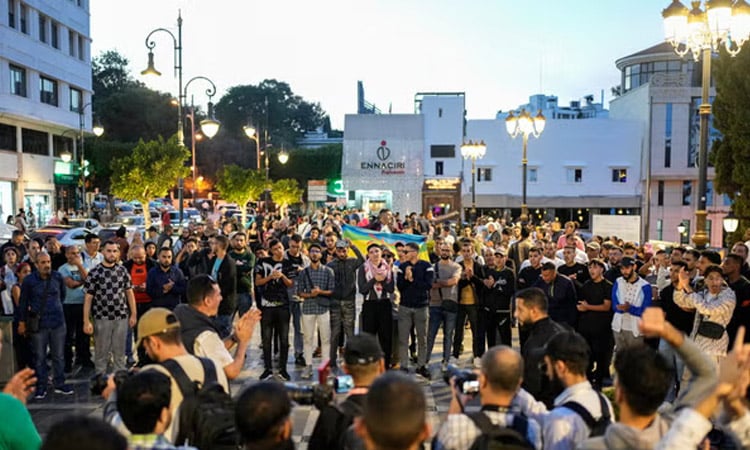News Flash
News Flash

RABAT, Oct 19, 2025 (BSS/AFP) - Young Moroccans protested Saturday in front of parliament to demand the release of demonstrators arrested in recent weeks as part of Morocco's Gen Z movement seeking reforms to social services.
The movement, which had taken the usually stable kingdom by surprise in late September, appeared to be losing momentum as fewer demonstrators have taken to the street.
Some 600 people, including minors, are currently detained pending trial on suspicion of joining the movement, said the Moroccan Association for Human Rights.
"Detainees, stay strong, we'll keep fighting," demonstrators chanted on Saturday in Rabat.
Though a long-awaited speech by King Mohammed VI last week did not make mention of the movement, the monarch urged his government to improve public education and healthcare -- the movement's initial demands.
"The king didn't say anything about the movement, which disappointed a lot of people," said one demonstrator on condition of anonymity for fear of reprisals.
"But we remain mobilised."
Since September 27, the GenZ 212 collective -- an online-based group who called for the protests and whose organisers remain unknown -- has led near-daily protests until last week in the North African country.
Their demands later expanded to include an end to corruption and a change of government.
The protest came after the deaths of eight pregnant women during Caesarean sections at a hospital in Agadir.
Hundreds were arrested during the early days of the largely peaceful but prohibited demonstrations.
Some cities had seen spates of violence and acts of vandalism, while authorities have said three people were killed by police acting in "self-defence" during clashes in a village near Agadir.
One protester arrested a day before the protests erupted was sentenced to five years in prison earlier this week for "incitement to commit a crime" after he made calls to join the protest, lawyer Mohamed Nouini told AFP on Saturday.
Nouini on Friday said a student was sentenced to one year in prison after his arrest during one of the rallies.
Following the king's address, the collective called for "peaceful sit-ins".